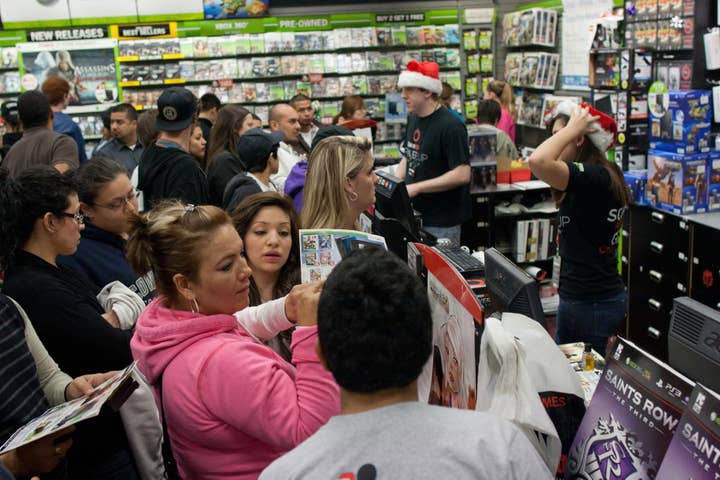Game retailers most effective at carding minors
FTC secret shopper report says it's still harder for US minors to buy M-rated games than R-rated movies or explicit music
The gaming industry has come under a lot of fire for the effect of violent games on kids lately, but a Federal Trade Commission secret shopper report released today found minors have a harder time buying an M-rated game than they do a ticket or DVD for an R-rated movie, or music with explicit lyrics.
From April to June last year, the FTC sent unaccompanied children between the ages of 13 and 16 to a handful of major chains to see who would sell them restricted content. M-rated games were the most frequently denied purchases, with only 13 percent of underage shoppers able to buy them. Movie tickets were the next hardest purchase for unaccompanied minors, with fewer than 25 percent of kids able to get into R-rated movies. Bringing up the rear were R-rated and unrated DVDs (which 30 percent of minors successfully obtained) and music CDs with explicit lyrics tags (which were sold to minors 47 percent of the time).
The FTC has been conducting mystery shopper programs like this since 2000, and the compiled data indicates retailers are becoming stricter about their ratings enforcement policies. The 25 percent movie theater enforcement number represents an all-time best in the category, and is down from 33 percent in 2010. In that same study, minors were able to buy R-rated DVDs 38 percent of the time, and unrated DVDs 47 percent of the time.
Despite coming in dead last in enforcement, even CD purchases are being carded more diligently. In 2010, 64 percent of minors' attempts to buy them were successful; the year before, it was 71 percent
While gaming retailers lead the pack in carding efforts, their progress has stalled. This year's 13 percent purchase rate for M-rated games was the same as in the 2010 report.
The six retailers targeted for the gaming part of the mystery shopper program were GameStop, Walmart, Best Buy, Kmart, Target, and Toys R Us. Walmart showed the weakest carding, with 25 percent of kids able to purchase M-rated games. On the other hand, none of the children sent to Target were able to purchase M-rated games. The FTC said it was the first time in the mystery shopping program history that any retailer with 10 or more visits was able to post a perfect score in any category.
"Our underage shopper survey shows continued progress in reducing sales," said FTC Bureau of Consumer Protection acting director Charles Harwood. "But retailers can still strengthen their commitment to limit children's access to products that are rated or labeled as potentially inappropriate for them."

